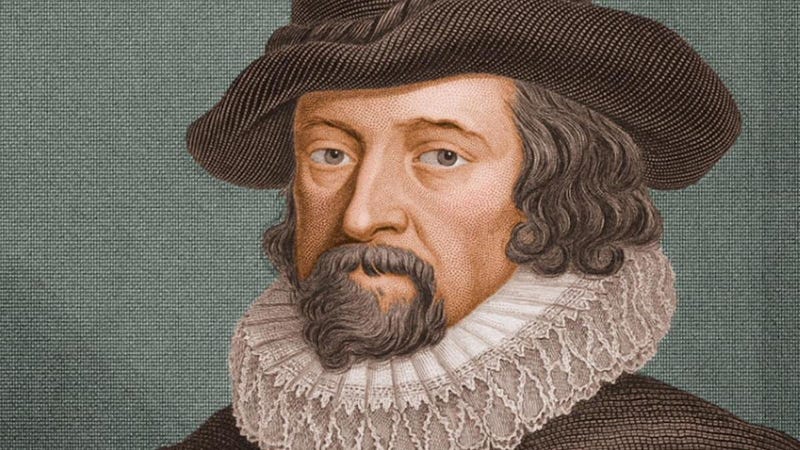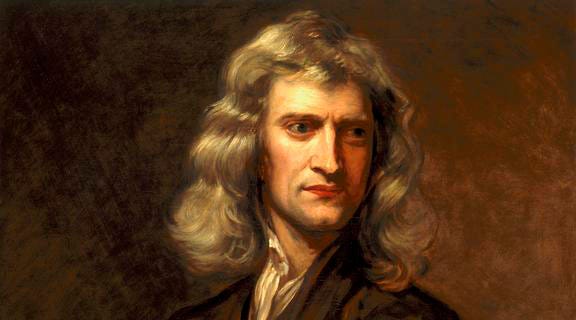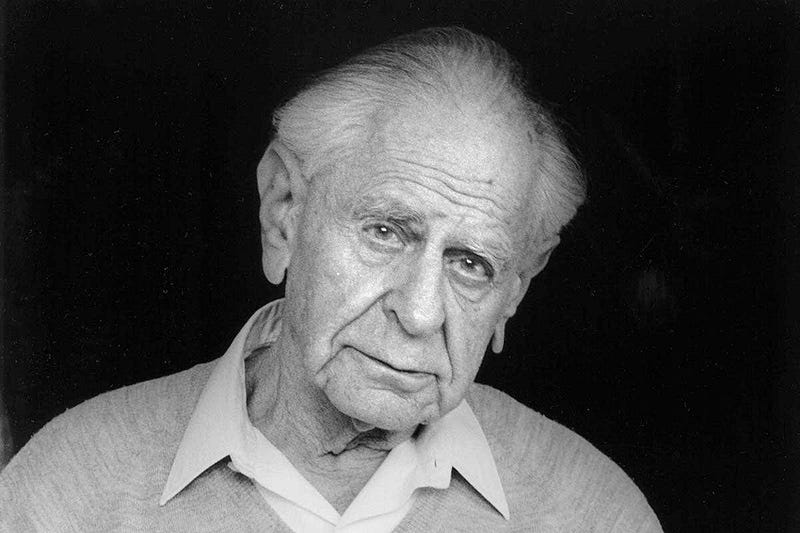Understanding the Intersection of Science, Finance, and Methodology
Written on
The relationship between the scientific method and the realms of investing and trading may appear distant initially; however, both fields depend on analytical thinking, meticulous observation, and hypothesis testing. The scientific method is a structured, logical way to comprehend the workings of the natural world, centered around the examination of hypotheses through careful observation and experimentation.
In the context of finance, making astute investment or trading decisions relies heavily on analytical reasoning and a methodical approach. Often, these decisions are grounded in hypotheses concerning market behavior or the performance of specific assets.
This article aims to delve into the connections between finance, trading, and the scientific method.

History and Definitions
Sir Francis Bacon (1561–1626), often referred to as Lord Verulam, played a pivotal role in the development of the scientific method. His emphasis on empirical evidence and inductive reasoning marked a significant shift in scientific inquiry. Bacon’s seminal work, Novum Organum, published in 1620, criticized the logical methods of earlier thinkers and proposed a new investigative framework. This framework involved a sequence of steps: observation, hypothesis formulation, experimentation, and analysis of results.
Bacon famously asserted, “Knowledge is power,” which underscores his belief in the significance of empirical investigation and experimentation in understanding the world around us. His methodology laid the foundation for modern scientific practices, prioritizing observation and experimentation over theoretical conjecture, thus challenging the Aristotelian paradigms that had previously prevailed.

Aristotle (384–322 BC) dominated scientific thought for centuries before the scientific revolution. His methodology combined empirical observations with logical reasoning, yet it diverged from contemporary scientific approaches in several key ways. He emphasized direct observation, particularly in the study of biology, and focused on classifying the natural world. However, his methods lacked the systematic rigor and controlled experimentation typical of modern science.
Aristotle posited that understanding any phenomenon necessitated an exploration of its “four causes”: - Material Cause: The substance from which something is created. - Formal Cause: The defining structure or design of an object. - Efficient Cause: The primary factor responsible for a change. - Final Cause: The intended purpose or reason for an entity's existence.
This focus on purpose (teleology) stands in stark contrast to modern scientific thought, which generally refrains from attributing inherent purposes to natural occurrences.
Aristotle's logical framework, particularly his development of syllogistic reasoning, remains one of his most influential contributions. Deductive reasoning involves deriving a conclusion from general premises, exemplified by the classic syllogism: - All men are mortal. (Major premise) - Socrates is a man. (Minor premise) - Therefore, Socrates is mortal. (Conclusion)
Although foundational, Aristotelian logic has its drawbacks and does not encompass all reasoning forms, leading to the emergence of more sophisticated logical frameworks in modern times.
Unlike the quantitative methods central to contemporary science, Aristotle's approach was descriptive, focusing on the qualities and characteristics of objects rather than their numerical measurements. His inquiries bridged science and philosophy, with his theories on substance, form, and potentiality deeply intertwined with his scientific explorations.
The Renaissance marked a gradual transition from an Aristotelian worldview to a more empirical and experimental scientific approach. The advent of the printing press facilitated the dissemination of innovative ideas, and the Scientific Revolution (circa 1543 to the late 17th century) epitomized a shift from reliance on established authority to a focus on observation, experimentation, and challenging prevailing beliefs.
Bacon, as a prominent figure during the latter part of the Renaissance and the early stages of the Scientific Revolution, championed the empirical method and inductive reasoning. He critiqued the Aristotelian reliance on deductive reasoning and advocated for a new mode of scientific inquiry founded on observation, experimentation, and systematic data collection.
Later Contributors
Following Sir Francis Bacon, the scientific method saw contributions from several key figures who refined and sometimes contested his ideas, leading to the modern scientific method we recognize today.
Galileo Galilei (1564–1642) is often hailed as the father of modern observational astronomy and the experimental method. His controlled experiments, like the inclined plane experiment, studied motion, while his telescopic observations provided evidence that refuted Aristotelian cosmology and supported the heliocentric model.
René Descartes (1596–1650) is renowned for his method of systematic doubt and emphasis on deductive reasoning. In his work Discourse on the Method (Discours de la Méthode), published in 1637, he presented a more mathematical and deductive approach compared to Bacon’s empirical methods, significantly contributing to analytical geometry.
Isaac Newton (1642–1727) synthesized empirical observation with mathematical description in his Philosophiæ Naturalis Principia Mathematica, first published in 1687. His laws of motion and universal gravitation were grounded in empirical observations, expressed mathematically.

Robert Boyle (1627–1691) is often recognized as a founder of modern chemistry. His work, including the formulation of Boyle's Law, involved precise experimentation under controlled conditions, aligning closely with Bacon's advocacy for empirical evidence.
John Locke (1632–1704), in his Essay Concerning Human Understanding, posited that all knowledge arises from experience, resonating with Bacon's emphasis on empirical evidence. Locke's philosophy reinforced the empirical approach in science, shaping the conceptualization of knowledge and understanding.
Charles Darwin (1809–1882) exemplified meticulous observation and hypothesis formation in his theory of evolution by natural selection, introduced in On the Origin of Species. His work significantly influenced biology and coincided with the emergence of statistical methods in scientific research.
Philosopher Karl Popper (1902–1994) introduced the criterion of falsifiability for scientific theories, insisting that a theory must be testable and potentially disprovable to qualify as scientific.

Modern Scientific Method
Contemporary science prioritizes the formulation of hypotheses and predictions that can be tested through experimentation or observation. The reproducibility of results and peer review process are fundamental to the modern scientific method, ensuring the reliability and integrity of research, often requiring interdisciplinary collaboration that merges knowledge from various fields.
Mathematics
Science is traditionally viewed as the exploration of the natural and physical realms, while mathematics is regarded as the study of abstract concepts such as numbers, quantities, structures, spaces, and changes. It generally does not involve empirical experimentation but relies on logical reasoning and proof.
Though mathematicians may not conduct experiments in the same manner as biologists or chemists, they employ a variant of the scientific method. They formulate hypotheses (conjectures), apply logical reasoning to investigate these hypotheses, and develop rigorous proofs to affirm truths.
The boundaries between mathematics and science often overlap, particularly in fields such as theoretical physics, computer science, and statistics, where the distinction between mathematicians and scientists blurs.
Mathematics is frequently referred to as the “language of science” because it articulates and clarifies many natural phenomena. Various mathematical fields closely relate to the natural sciences, including physics, chemistry, and engineering, and are instrumental in modeling, comprehending, and predicting natural events.
Economics, Finance, and the Scientific Method
Economics and, subsequently, finance are categorized under the social sciences. By collecting and analyzing historical market data, investors and traders can formulate strategies and make informed decisions regarding the purchase or sale of securities. Applying a systematic, logical approach and critical thinking enables investors and traders to make better decisions and reduce the likelihood of poor outcomes.
However, it’s essential to recognize that finance is not an exact science; accurate predictions about the future are often elusive (the reproducibility of results). Unlike many natural sciences, controlled experiments in finance are frequently challenging or unattainable due to the complexity and scale of economic systems.
The term “hard sciences” typically refers to natural sciences that rely heavily on empirical, quantitative methods and maintain a more rigorous and precise approach to scientific inquiry, such as physics, chemistry, and biology.
Sources
- Karl Popper (Wiki)
- Francis Bacon (Wiki)
- Aristotle (Wiki)
- Scientific Method (Wiki)
Subscribe to DDIntel Here.
Have a unique story to share? Submit to DDIntel here.
Join our creator ecosystem here.
DDIntel captures notable pieces from our main site and our popular DDI Medium publication. Check us out for more insightful work from our community.
DDI Official Telegram Channel: https://t.me/+tafUp6ecEys4YjQ1
Follow us on LinkedIn, Twitter, YouTube, and Facebook.